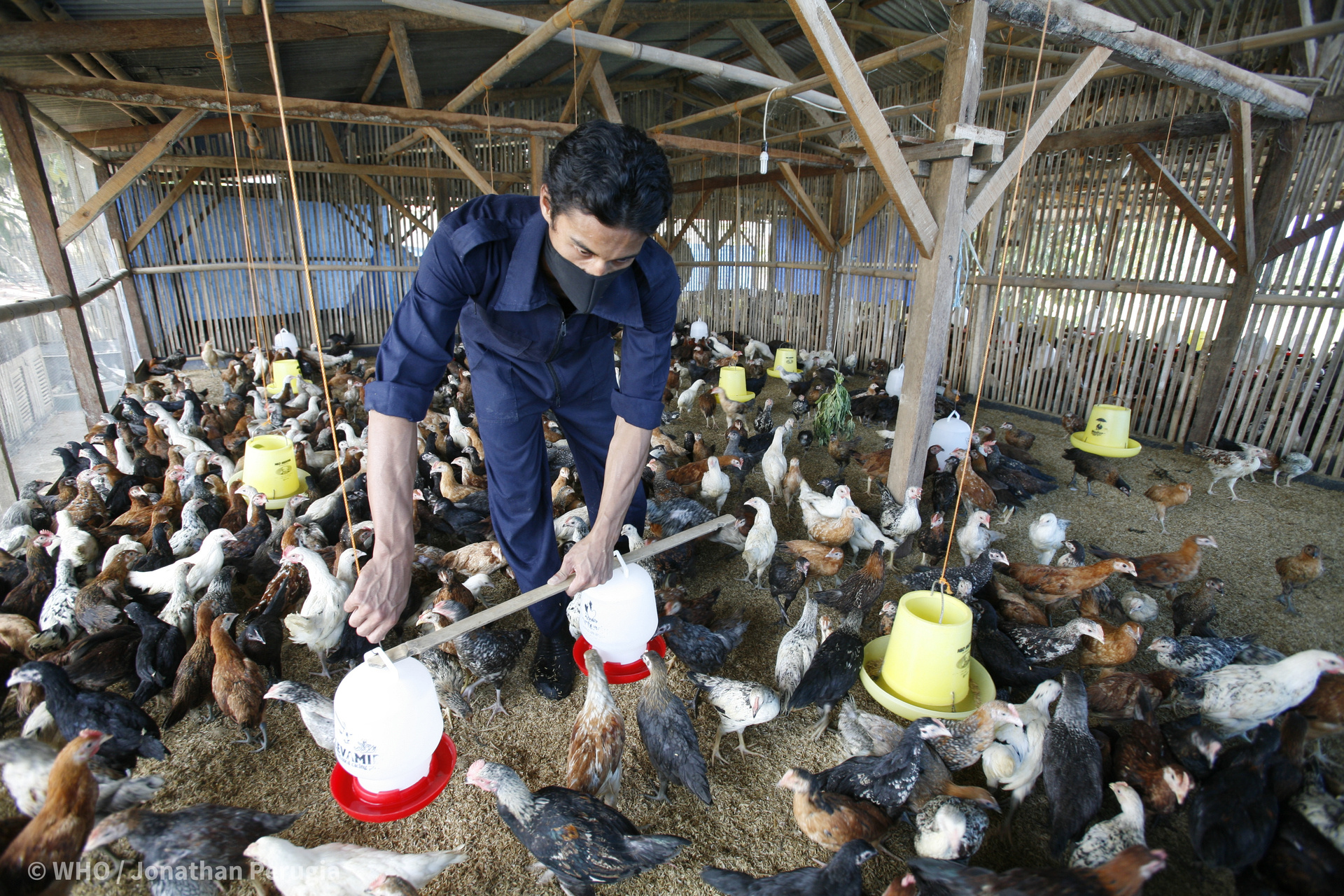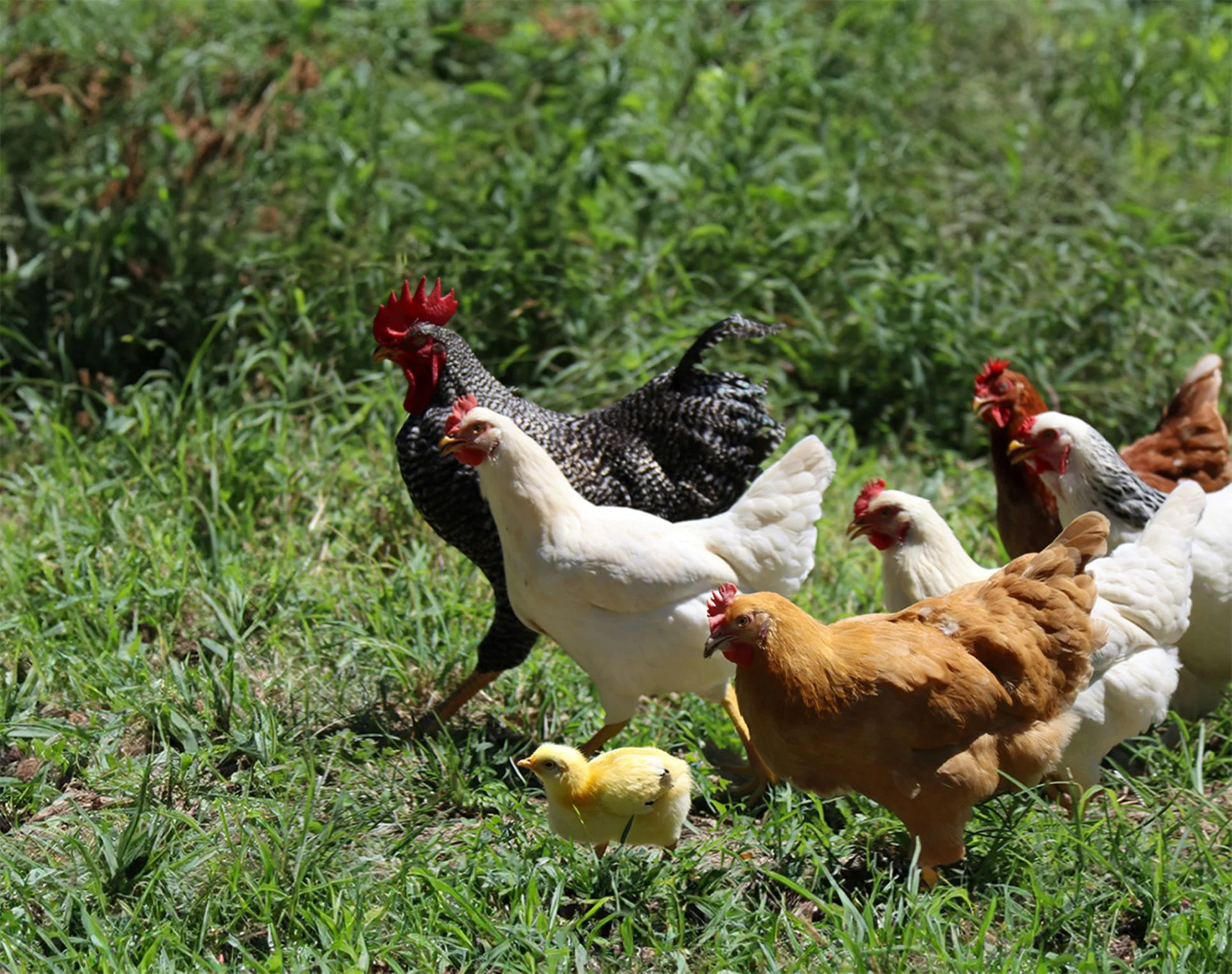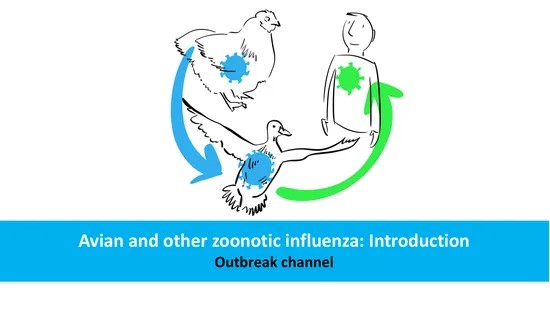Human-animal interface
Global Influenza Programme home page →
Birds are the natural hosts for avian influenza viruses. Avian influenza refers to an infectious disease of birds caused by infection with avian influenza viruses. Avian influenza viruses can also infect non-avian species including wild and domestic (including companion and farmed) terrestrial and marine mammals. Avian influenza viruses primarily spread from infected birds to humans through close contact with birds or contaminated environments, such as in backyard poultry farm settings and at markets where birds are sold.
There have also been limited reports of transmission from other infected animals to humans.
Swine influenza is a respiratory disease of pigs caused by influenza A viruses. Most swine influenza viruses do not cause disease in humans, but some countries have reported cases of human infection from certain swine influenza viruses. Close proximity to infected pigs or visiting locations where pigs are exhibited has been reported for most human cases, but some limited human-to-human transmission has occurred.
Just like birds and pigs, other animals such as horses and dogs, can be infected with their own influenza viruses (canine influenza viruses, equine influenza viruses, etc.).
Focus
Dive in
Technical guidance
Surveillance and investigations
Protocol to investigate non-seasonal influenza and other emerging acute respiratory diseases
Influenza Investigations & Studies (Unity Studies)
Laboratory and virology
Vaccines
Clinical management
Clinical care of severe acute respiratory infections – Tool kit
Guidelines for the clinical management of severe illness from influenza virus infections
Food safety
Five keys to safer food manual
Terminology
Training materials



